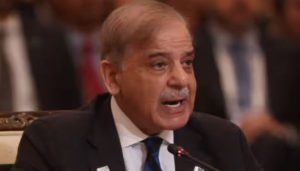Pahalgam attack deepens India-Pakistan rift; diplomatic, trade fallout begins

New Delhi: Diplomatic ties between India and Pakistan have deteriorated sharply following a deadly terror attack in Pahalgam, Jammu and Kashmir, earlier this week that killed 26 civilians. The fallout has triggered a wave of retaliatory measures from both countries, significantly impacting cross-border relations.
India has responded with a series of firm actions. All valid visas issued to Pakistani nationals have been revoked, effective April 27. However, medical visas will remain valid through April 29. Pakistani nationals currently in India have been instructed to leave the country before their visa expiry.
The Indian government has also issued a strong advisory urging its citizens not to travel to Pakistan. Indians currently in Pakistan have been asked to return as soon as possible.
Diplomatic channels have also been downgraded. India has expelled Pakistani defence personnel and reduced its own diplomatic staff stationed in Islamabad. In a historic shift, India has also suspended the Indus Waters Treaty, a long-standing water-sharing agreement between the two countries.
Pakistan, in turn, has announced several countermeasures. Following a National Security Committee meeting Thursday, Pakistan stated that any threat to its sovereignty and security will be met with firm and reciprocal actions.
The government in Islamabad has suspended all trade with India, including goods transiting through Pakistan from third countries. Pakistan has also closed the Wagah border for all cross-border movement from India and blocked its airspace for all Indian-owned or operated airlines.
Additionally, Pakistan has suspended the SAARC Visa Exemption Scheme for Indian citizens, affecting even Sikh pilgrims. Indian military advisers at the High Commission have been asked to leave the country by April 30, according to a PTI report.
In a significant escalation, Pakistan has also declared that it is holding all bilateral agreements with India, including the Simla Agreement of 1972, in abeyance. It has capped the number of Indian diplomats allowed in Islamabad at 30 and declared Indian military diplomats persona non grata.
The rapid escalation has deeply affected diplomatic, economic and people-to-people exchanges between the two countries. The suspension of the Simla Agreement, which has been a cornerstone of India-Pakistan dialogue for over five decades, raises serious concerns about the framework for future engagement.
The international community is closely monitoring the situation and has urged both sides to de-escalate tensions and pursue diplomatic dialogue to prevent further conflict.
PNN
News